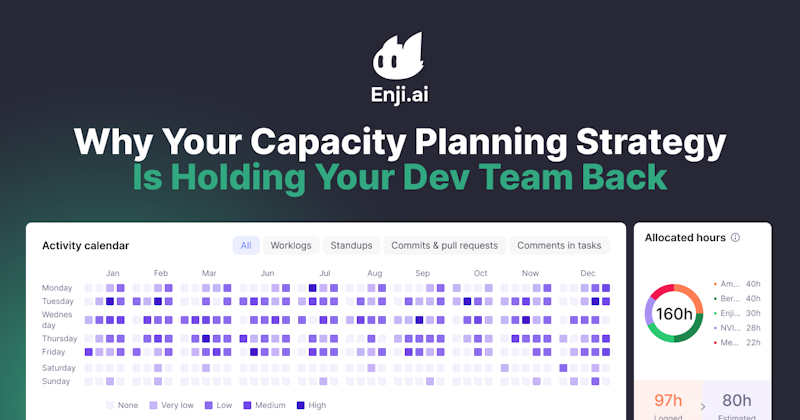AI Glossary: Key Terms
Definition of AI agent
What is an AI Agent?
An AI agent is a software program that perceives its environment through sensors, interprets the gathered data, and acts autonomously to accomplish specific goals. Examples include code review agents that scan pull requests and identify potential bugs, one that runs test suites for new code, and an agent that tracks library versions across projects to ensure security parameters are up-to-date. These systems process inputs and produce outputs without constant human guidance or intervention.
AI agents range from simple rule-based programs to complex systems that use advanced machine learning techniques. Modern agents have incorporated sophisticated capabilities for reasoning, planning, and adapting to new situations based on their experiences.
What are the types of AI agents?
There are various types of AI agents that exist across a spectrum of complexity and specialization and serve different purposes. To organize agents, there are classifications based on an agent's cognitive abilities, application areas, and operational methods.
- Simple reflex agents: Respond to current inputs based on predefined rules.
Example: A thermostat that turns on the heat when the temperature drops below a threshold. - Model-based agents: Maintain internal state representing unobserved aspects of the environment.
Example: A weather forecasting system that tracks changing atmospheric conditions. - Goal-based agents: Work toward specific objectives using planning and decision-making.
Example: A navigation app that finds an optimal route to a destination. - Utility-based agents: Maximize expected utility or value across possible outcomes.
Example: An investment algorithm that balances risk and reward. - Learning agents: Improve performance through experience.
Example: A recommendation system that refines suggestions based on user interactions. - Vertical AI agents: Specialize in narrow domains with deep expertise, such as medical diagnosis and legal document analysis.
Example: A medical diagnostic assistant for specific conditions. - Conversational agents: Process natural language for interaction, such as chatbots and virtual assistants.
Example: Customer service chatbot handling common inquiries. - Embodied agents: Exist in physical or virtual environments, like robots and game characters.
Example: A warehouse robot that navigates aisles to retrieve items. - Multi-agent systems: Collections of agents that interact and cooperate.
Example: A traffic management system that coordinates multiple smart traffic lights.
Each type offers advantages for particular applications, and businesses will need to consider the requirements and constraints of their product when selecting an agent. Development continues in this field with hybrid approaches that combine elements from multiple categories to enhance capabilities.
How does an AI agent work?
AI agents operate through a continuous cycle of perception, processing, and action. The process begins when sensors or digital inputs collect data from the environment, which algorithms then analyze to interpret the current situation and state. For example, a smart home assistant perceives a voice command to "turn on the lights," processes this input to understand the request, decides which lights to activate based on location and time of day, sends signals to the appropriate smart bulbs, and remembers preferences for future automation.
To reach the result, the agent makes its decision according to its programming, goals, and knowledge base. The knowledge base includes user preferences and previous requests. Then, the agent executes actions through digital outputs or physical mechanisms. Advanced agents incorporate feedback loops to learn from outcomes, allowing progressive improvement in performance over time.
What are the main benefits and challenges of implementing AI agents?
The benefits and challenges of implementing AI agents are similar across different industries. Of course, there are significant considerations that businesses need to address when they plan to deploy these technologies in real-world settings.
The benefits of the Enji PM Agent include:
- Automation of repetitive tasks, such as text-based stand-ups.
- Continuous data analysis and reporting without fatigue.
- Faster data processing and decision making than humans for quick answers.
- Ability to handle massive project datasets.
- Cost reduction for routine operations, including reports and summaries.
The challenges that exist at present concern all AI agents:
- Potential lack of reliability in unpredictable environments.
- Safety concerns when agents perform autonomous decision making.
- Ethical considerations about responsibility and oversight.
- Technical limitations in reasoning capabilities.
- Data privacy and security concerns.
- Integration with existing systems and workflows.
- Development and maintenance costs.
- Trust and acceptance by human users.
- Potential job displacement.
As in many situations, businesses will need to develop strategies that allow them to address the risks and challenges while reaping the benefits. Enji PM Agent is integrated into the Enji platform and works with project data that users create as a true assistant to human team members that improves over time. Enji offers users different deployment options that match their security preferences. Secure data protection is at the heart of PM Agent, and users can also choose to install Enji within their own security perimeter to enjoy full control of the platform and AI agent. In either case, implementation requires a long-term approach of constant monitoring and design to ensure that AI agents serve human needs effectively and responsibly.
Key Takeaways
- An AI agent is software that perceives its environment, interprets the gathered data, and acts autonomously to achieve the desired result.
- There are several types of agents that each work within specific contexts, including simple reflex agents, model-based agents, goal-based agents, utility-based agents, learning agents, vertical AI agents, conversational agents, embodied agents, multi-agent systems.
- AI agents perform a continuous cycle of perception, processing, and action.
- Enji PM Agent automates text-based stand-ups, performs continuous data analysis and reporting, produces fast answers based on data, handles project datasets, and reduces costs for routine reports and summaries.
Last updated in April 2025


